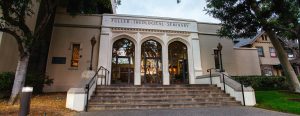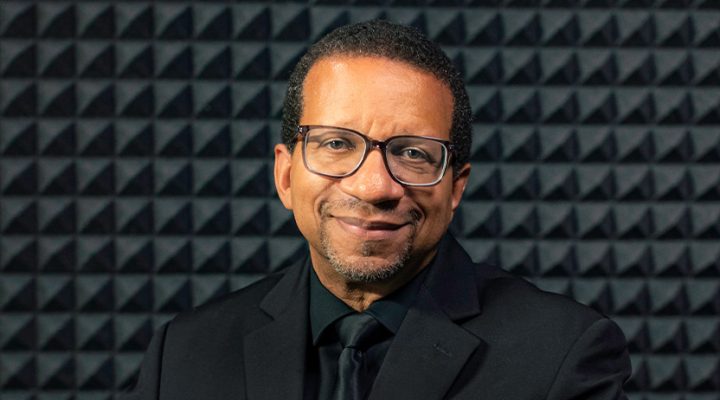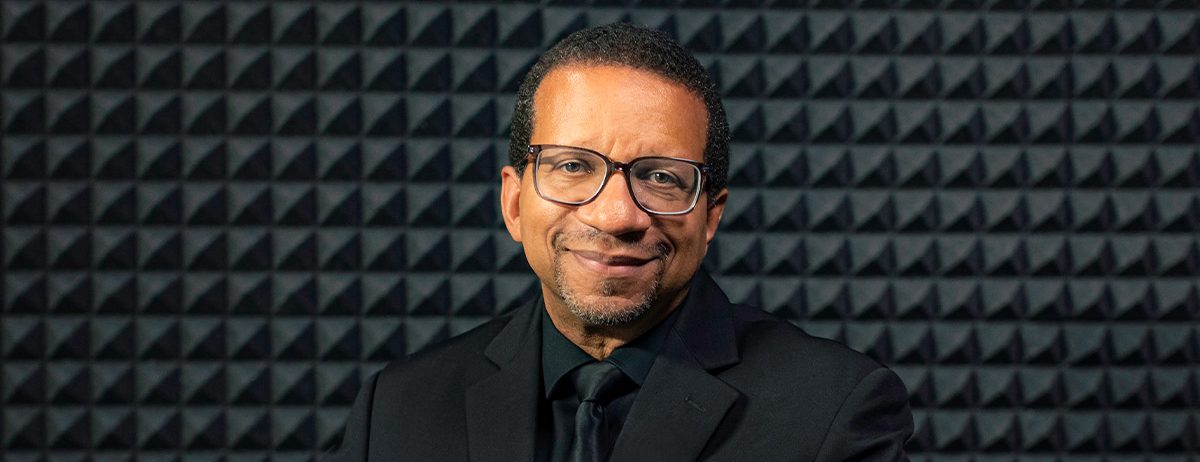A Black Baptist has been named president of the nondenominational Fuller Seminary, marking the first time the school will be led by anyone other than a white male and the third time a Baptist will take the helm.
David Emmanuel Goatley will come to the Pasadena, Calif., seminary from Duke Divinity School, where he currently serves as associate dean for academic and vocational formation, research professor of theology and Christian ministry, and director of the Office of Black Church Studies.
When he takes office Jan. 3, 2023, Goatley also will become the first president to have led a major global missions agency. Before arriving at Duke, Goatley served 20 years as CEO of Lott Carey Baptist Foreign Mission Society.
Fuller identifies as an “evangelical, multidenominational graduate institution committed to providing indispensable, formational education for diverse Christian leaders everywhere.” It operates two academic schools — the School of Mission and Theology and the School of Psychology and Marriage and Family Therapy — offering master’s and doctoral degree programs to 3,000 students from 80 countries and 113 denominations.
Goatley will succeed Mark Labberton, who announced this planned transition in October 2021. He will become the 75-year-old institution’s sixth president. Only two others were Baptists: Edward John Carnell and David Allan Hubbard.
“The confluence of David Goatley’s professional expertise in the fields of theology, psychology and missiology, together with his experience as an academic dean at a premier university, make him a remarkable match for Fuller Seminary at this pivotal moment in its history,” said Dan Meyer, chair of Fuller’s board of trustees. “For 75 years, Fuller Seminary has been blessed with uncommonly thoughtful, gracious, biblically rooted and culturally relevant presidents, and Dr. Goatley is another figure in this inspirational line.”

Of his new role, Goatley said: “It is a distinct honor to be part of this family and to succeed distinguished predecessors in service as the sixth president. Innovation and imagination are no strangers at Fuller, and I am thrilled to follow the Spirit’s lead into a new era of teaching, learning and serving the church and the world.”
A Kentucky native, Goatley earned a bachelor of science degree in guidance and counseling from the University of Louisville. From Southern Baptist Theological Seminary in Louisville he earned a master of divinity degree with an emphasis in pastoral care and counseling and a Ph.D. in theology. He is ordained in the National Baptist Convention USA and served as pastor of First Baptist Church of Campbellsville, Ky., for nine years.
A seminary news release said of Goatley: “His passion for justice is reflected in his activism around issues such as genocide, hunger, racism and inequality, serving in leadership capacities for organizations including Kids Against Hunger, the Save Darfur Coalition, and the NAACP.”
Fuller Theological Seminary was founded in 1947 by radio evangelist Charles E. Fuller and Harold Ockenga, pastor of Park Street Church in Boston. Ockenga became the school’s first president. Among its first faculty members were Everett Harrison, Carl F. H. Henry, Harold Lindsell and Wilbur Smith.
This intentionally nondenominational school opened its doors in an era when the word “evangelical” was emerging in distinction from the more restrictive term “fundamentalist.” Christianity Today magazine, considered the flagship publication of evangelicalism, would not be founded for another nine years.
George Marsden, writing in Reforming Fundamentalism:Fuller Seminary and the New Evangelicalism, said the school’s founders hoped to reform fundamentalism’s separatist and anti-intellectual stance by creating a seminary that would become “a Caltech of the evangelical world.”
From the beginning, this placed Fuller at odds with more traditional seminaries owned by the major denominations. For example, relatively few Southern Baptist congregations hired pastors from Fuller, although that began to change in more recent years.
Fuller found itself at the center of the theological debates over liberalism and conservatism, as well as biblical inerrancy, in the mid-20th century.
One of the seminary’s greatest claims to fame was creation of a School of World Mission in 1965 and hiring esteemed missiologist Donald McGavran to be the first dean. Faculty members such as Alan Tippett, Ralph Winter and Peter Wagner played influential roles in the Protestant understanding and practice of missions and church planting.
The school’s website lists more than 100 full-time “regular” faculty members, representing one of the largest seminary faculties in the nation.
Although diverse in many ways, Fuller has made clear its firm commitment to women in ministry: “Fuller welcomes women equally into all its programs, and the seminary is committed to making its resources fully available to women as they pursue the professions and ministries to which the Lord has called them. All who teach and study in Fuller’s programs are expected to honor this commitment: under no condition may the authority of the classroom be used to challenge the calling of any student on the basis of gender.”
Even though not receiving major financial support from a denomination, Fuller reports 42% of its revenue comes from private gifts, grants and contracts, triple the national average for post-secondary schools nationwide. Also, 53% of its revenue comes from tuition and fees, according to the Institute for Education Sciences.
Related articles:
Putting the white in witness since the 1940s | Analysis by Jacob Alan Cook
Angels from Africa: Reckoning with the New Apostolic Reformation | Analysis by Alan Bean


